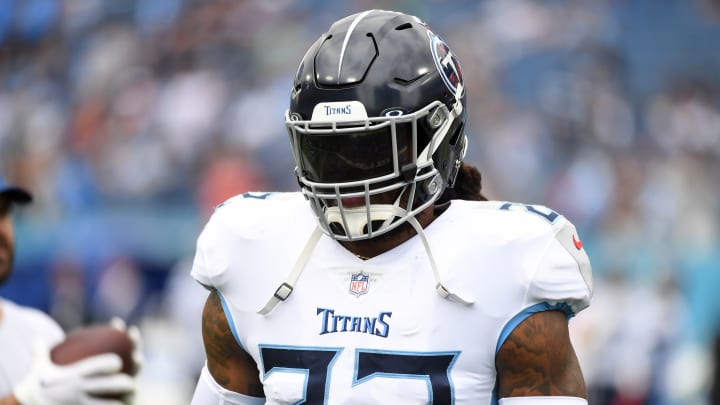Two Crimson Tide Products Not Expected to be Franchise Tagged

NFL running backs have faced a lot of criticism over the past couple of years and as franchise tags have started to be placed, several big-name members of the position have reportedly been told that they may not be with their respective organizations next season.
ESPN NFL insider Adam Schefter reported on Monday that former Crimson Tide standouts Derrick Henry and Josh Jacobs are a part of that list.
"The Titans won’t tag standout veteran free-agent-to-be running back Derrick Henry," Schefter writes. "The Raiders will attempt to re-sign free-agent-to-be running back Josh Jacobs, but they are not expected to tag him, not with his franchise tag costing $14,149,200, according to league sources."
In other words, Henry is expected to explore free agency and find a new team for next season while the Raiders want Jacobs back, but not at his current price if they were to tag him. That said, there's no guarantee that Jacobs will return to Las Vegas.
Henry, the 2015 Heisman Trophy winner, led the NFL with 280 rushing attempts this past season, was second in the league in rushing yards (1,167) and also ran in for 12 scores. The four-time Pro Bowler turned 30-years-old on Jan. 4.
Jacobs, who often split carries at Alabama but broke out during the 2018 SEC Championship and CFP semifinal game vs. Oklahoma, earned All-Pro honors in 2022 after finishing as the league's rushing leader. However, in 13 games this past season, he logged a career-low 3.5 yards per attempt. The two-time Pro Bowler turned 26-years-old on Feb. 11.
Both of these running backs are fighting different battles—age and a return to normalcy—but they each want to continue to be big names among the entire league in the future.
One factor to keep in mind as more news develops regarding Henry and Jacobs is that on Feb. 23, the NFL announced that its salary cap for the 2024 season will be a record $255.4 million per team. This is a 13.6 percent increase over last year's salary cap and $30.6 million more per team than last year's $224.8 million.
